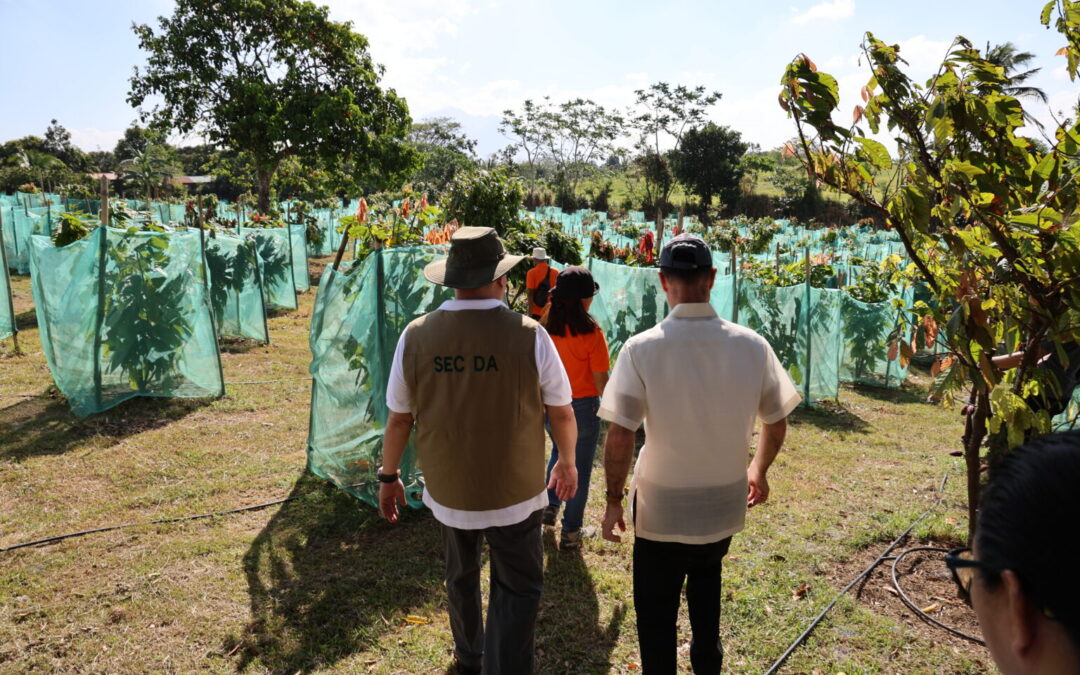The Department of Agriculture shall focus on the revitalization of the local cacao industry, through its High Value Crops and Development Program (HVCDP) and other operating units.
“Some of the cacao trees are now being cut because farmers are not making much money from cacao since they do not really know how to process it after harvesting,” Agriculture Secretary Francisco Tiu P. Laurel, Jr. explained during his visit at the Filipinas Cacao Heritage Reserve on March 5, 2024.
The Secretary added that the Department will include as one of its thrusts the revival of the cacao industry to aid the 74,428 Filipino cacao farmers—as per March 6, 2024 data of the DA-Registry System for Basic Sectors in Agriculture (RSBSA)—through the DA-HVCDP.
The Program’s notable initiatives include the provision of cacao planting materials and farm inputs, conduct of capacity-building initiatives for cacao farmers and extension workers, establishment of cacao technology demonstration sites, distribution of farm machineries and equipment, and construction of irrigation facilities.
Secretary Tiu Laurel and Ambassador of Israel to the Philippines Ilan Fluss visited the 13-hectare cacao farmland in Barangay Bunggo, Calamba, Laguna and witnessed the best agricultural practices and innovations for the local cacao.
The Filipinas Cacao Heritage Reserve is a 13-hectare cacao farmland in Barangay Bunggo with about five hectares of productive area. Since 2022, it has partnered with the Embassy of Israel in the Philippines for the provision of technical assistance. It employs a team of licensed Filipino agriculturists, foresters, agricultural and biosystems engineers, and agri-technicians under the mentorship of Israeli experts in cacao production.
The collaboration also sparked the successful rehabilitation and revival of a 90-year-old Criollo cacao tree in Barangay Bunggo, which local historical accounts state originated from Mexico. The tree now serves as the cacao farm’s source of planting materials.
During the Secretary’s visit, both Filipino and Israeli teams demonstrated the integrated pest management techniques, drip irrigation facilities, weather monitoring system, cacao breeding and grafting initiatives, composting practices, and other Israeli practices and technologies applied in the cacao farm.
“I believe that through this partnership between Israel and the Philippines, we are now able to see some changes in Philippine farming not just in cacao but also in other crops. Hopefully, this will also be a catalyst for change for the Philippines,” shared farm owner Jacqueline Sy Go. ### (DA-AFID)


